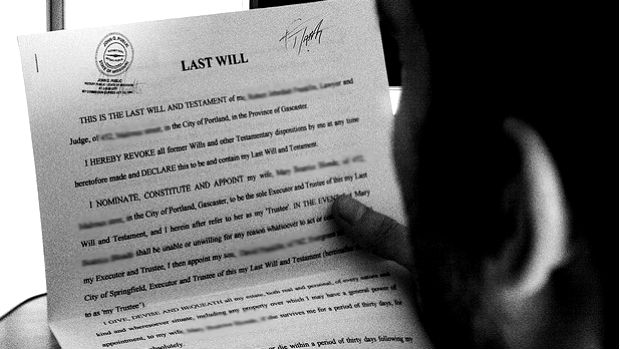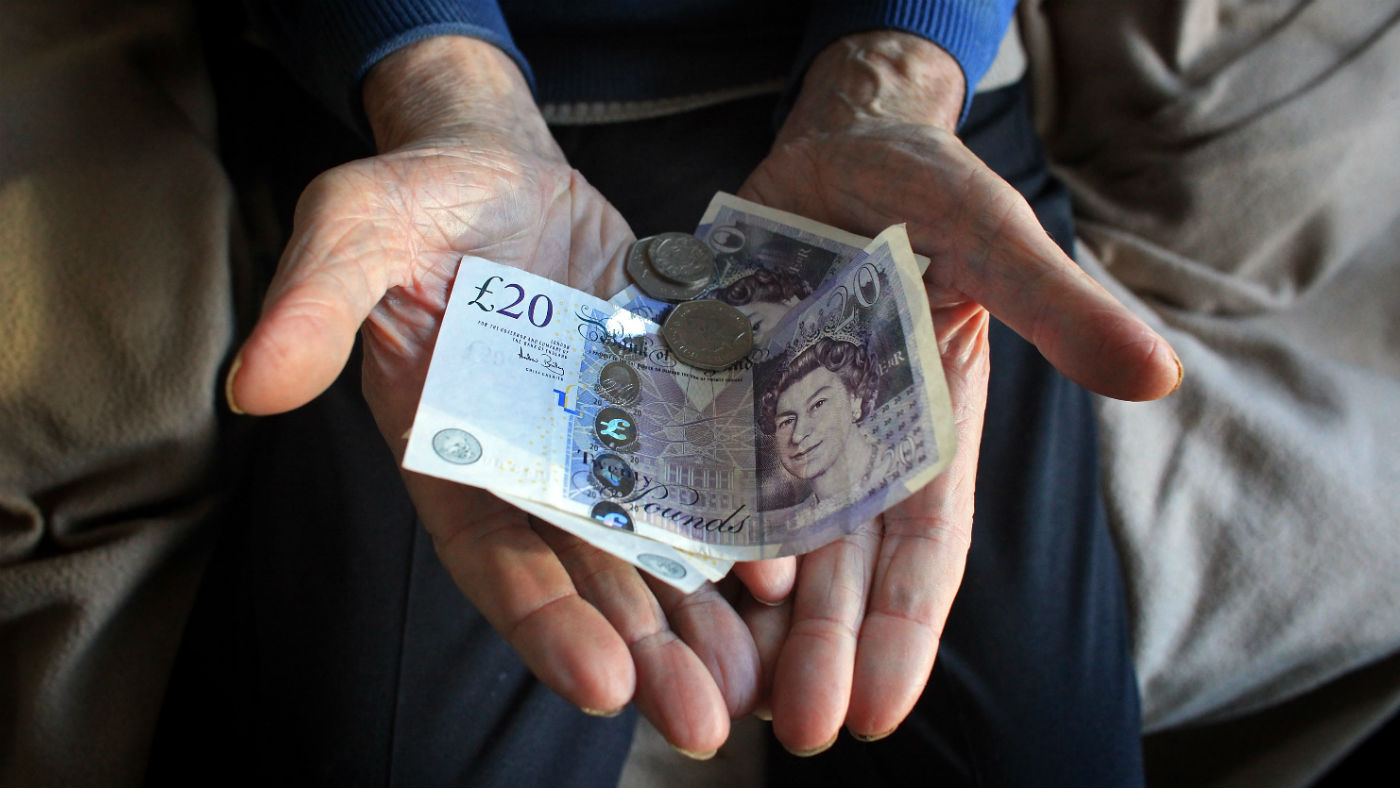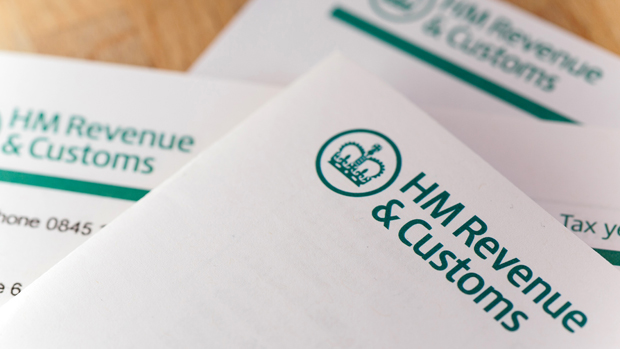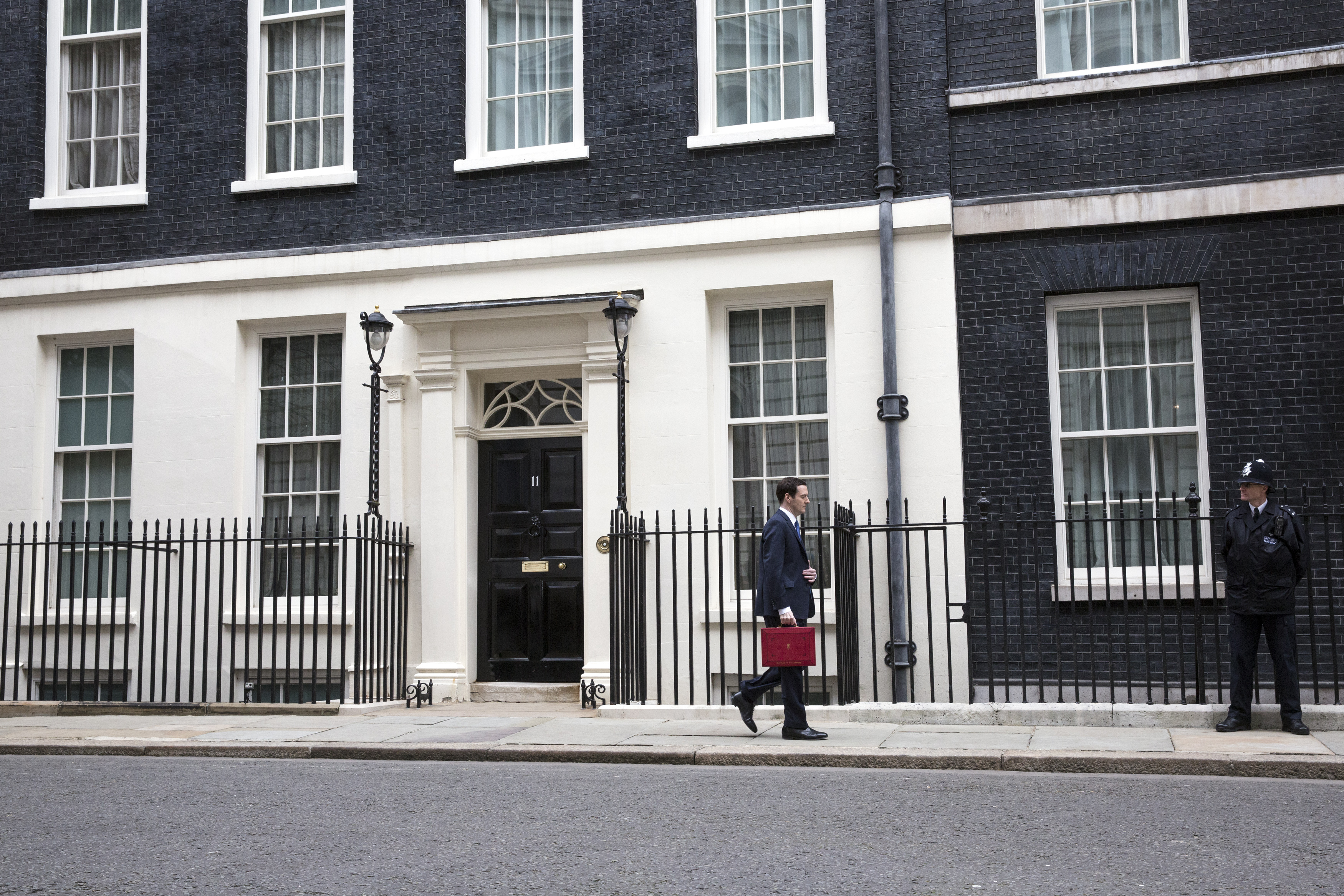Why you need a will – and how WillAid can help
WillAid 2014 aims to get us thinking about our legacies. Here's why that's a good idea

A free daily email with the biggest news stories of the day – and the best features from TheWeek.com
You are now subscribed
Your newsletter sign-up was successful
What would happen to your money, your home and your family if you died tomorrow?
On Saturday WillAid 2014 kicks off with the aim of encouraging you to reflect on that question – and make sure your answer is legally watertight.
In practice, what it means is that for the whole of November you can get a will drawn up by a participating solicitor in return for a donation to charity. It's therefore a great time to get your estate organised and make sure that should you die your assets are passed on to the people you want to benefit.
The Week
Escape your echo chamber. Get the facts behind the news, plus analysis from multiple perspectives.

Sign up for The Week's Free Newsletters
From our morning news briefing to a weekly Good News Newsletter, get the best of The Week delivered directly to your inbox.
From our morning news briefing to a weekly Good News Newsletter, get the best of The Week delivered directly to your inbox.
These days our finances are more complicated than ever. Many of us jointly own property with our partners or parents or have complicated family set-ups. Yet, despite these tangled finances only a third of UK adults have a will, according to a survey by SunLife.
If you die without a will you are classed as having died intestate and your assets are divided up according to the Rules of Intestacy, which were drawn up in 1925. So, they are quite dated even after some updating that took place this month. Under the current rules if you die without a will and are married or in a civil partnership without children your other half gets everything. If there are children then your spouse gets the first £250,000 and half of what remains with the rest going to your children. That sounds simple enough, but if your house is worth more than £250,000 this can leave your spouse facing the prospect of selling in order to give your children their due.
The people worst affected by intestacy laws are unmarried couples. If this scenario your partner will get nothing if you die. Instead your estate goes to your parents if they are alive otherwise you siblings, half-siblings, grandparents, aunts and uncles or, if you don't have any of those the government. Imagine it, your mourning boyfriend or girlfriend having to sell up their home in order to hand over half the value of it to the government. Not a pretty picture.
So, that's why you need a will. Now how to go about getting one. A scrap of paper listing your wishes won't cut it. For a will to be counted it needs to be legally sound, signed, dated and witnessed. The safest way to make sure that having gone to the trouble of making a will it is watertight is to get it drawn up by a qualified solicitor. This isn't as expensive as you might expect.
A free daily email with the biggest news stories of the day – and the best features from TheWeek.com
Normally a single basic will costs about £140 if a solicitor does it. During WillAid you can get one done by a participating solicitor in return for a suggested donation of £95 for a single will, or £150 for a pair of mirror wills. Mirror wills are where two people get wills that are identical except they have each other named as the beneficiary – ideal for couples with straightforward finances. You can find out more about it and find your nearest participating solicitor at www.willaid.org.uk.
Once you have your will make sure you keep it in a safe place where your loved ones will know where to find it. If you get one drawn up by a solicitor they will usually keep a copy on file. Also, be sure to update it if your circumstances change. Dying without a will can lead to a difficult situation for your surviving loved ones, but dying with one that is out of date could lead to a family war.
Creative Commons image by Julian Rodriguez Orihuela
-
 How to Get to Heaven from Belfast: a ‘highly entertaining ride’
How to Get to Heaven from Belfast: a ‘highly entertaining ride’The Week Recommends Mystery-comedy from the creator of Derry Girls should be ‘your new binge-watch’
-
 The 8 best TV shows of the 1960s
The 8 best TV shows of the 1960sThe standout shows of this decade take viewers from outer space to the Wild West
-
 Microdramas are booming
Microdramas are boomingUnder the radar Scroll to watch a whole movie
-
 The taxes Labour could raise to plug spending shortfalls
The taxes Labour could raise to plug spending shortfallsThe Explainer Chancellor Rachel Reeves has warned Labour inherited a 'black hole' spending gap from the Tories
-
 The great wealth transfer: who stands to gain?
The great wealth transfer: who stands to gain?Under the radar Millennials are forecast to inherit a fortune but are they qualified to handle sudden riches?
-
 Millennials ‘misjudging inheritance windfall’
Millennials ‘misjudging inheritance windfall’Speed Read Survey finds some young people have unrealistic expectations of the amount of money they will inherit and what it could buy
-
 Inheritance tax hits record high: what are the thresholds?
Inheritance tax hits record high: what are the thresholds?Speed Read Rise in property prices means more people are having to pay controversial levy
-
 Inheritance tax: how the changes will affect you
Inheritance tax: how the changes will affect youIn Depth A new property allowance will shield homes worth up to £1m from IHT
-
 Budget 2015: will inheritance tax change today?
Budget 2015: will inheritance tax change today?Speed Read Rumours abound that the Chancellor is about to relax the rules on inheritance tax, but the change may not come immediately
-
 Inheritance tax change 'could force elderly abroad'
Inheritance tax change 'could force elderly abroad'Speed Read New rules for trusts would put up inheritance tax bills for wealthy families